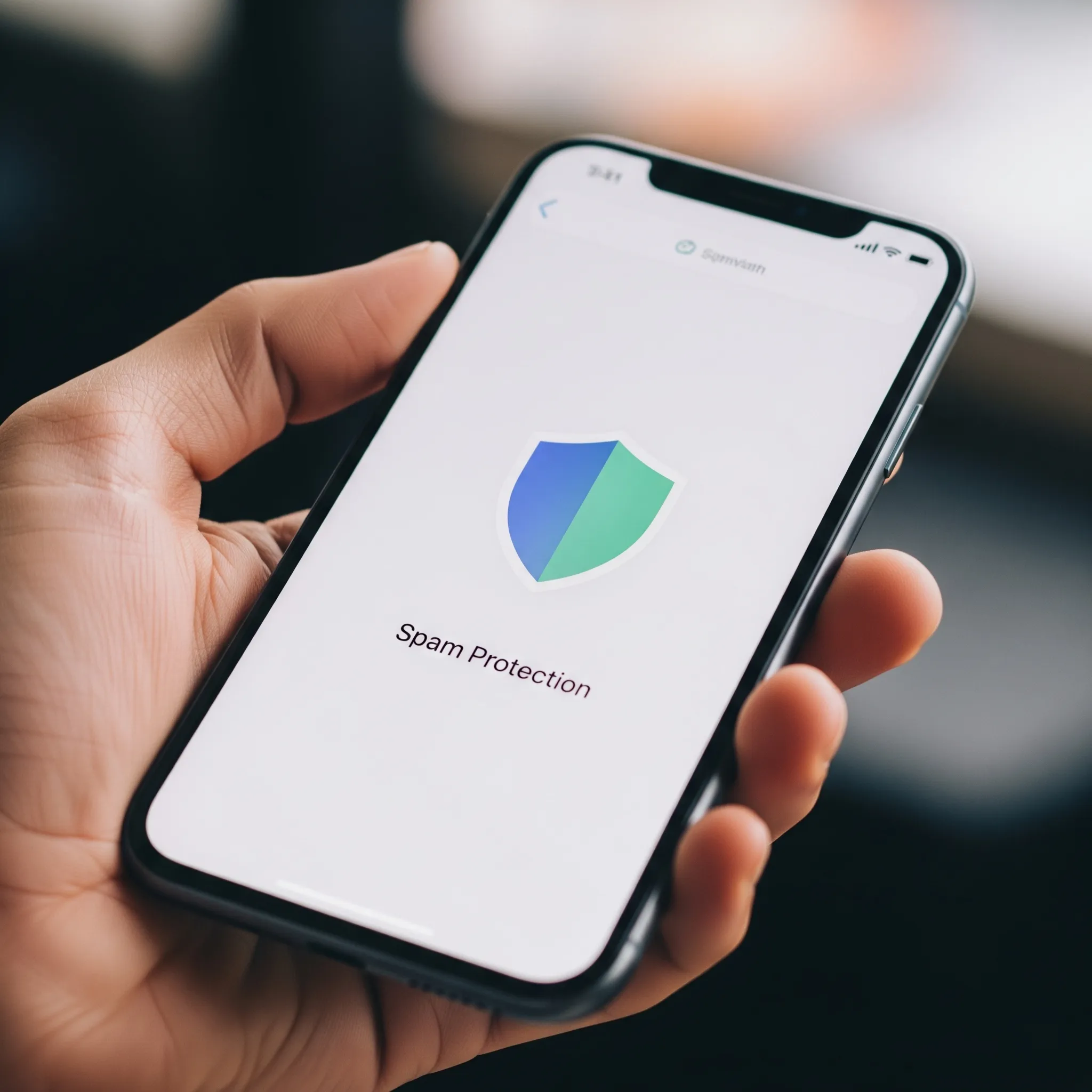
A protected iPhone: your shield against spam.
Introduction: What the Antispam Filter Is and Why It's Crucial for Your iPhone
In today's digital world, our iPhones are constantly bombarded with unwanted calls, messages, and emails. These annoying contacts, often called 'spam,' are not just a nuisance but also a potential threat. The antispam filter is your digital shield, a system designed to proactively recognize and block these communications, protecting you not only from annoyance but also from fraud and scams. Understanding how it works and how to make the most of your iPhone's tools is the first step to regaining control of your phone.
Built-in iOS Features: Your iPhone's Native Tools
Your iPhone is not defenseless against spam. Apple has integrated several features in iOS to help you manage and block unwanted contacts. These include the ability to block individual phone numbers, filter messages from unknown senders, and report emails as spam. These options are easy to use and represent the first line of defense against spam. Although effective, sometimes they are not enough to stop the relentless flow of unwanted communications, which is where more advanced techniques and third-party apps come into play.
Techniques Used to Scam via iPhone: Recognizing the Danger
Spammers and scammers use increasingly sophisticated techniques to try to deceive you. Calls may appear to come from local numbers or even known companies, a practice called 'spoofing.' SMS and iMessage messages often contain links to malicious websites or try to get you to reveal personal information under the pretext of a technical issue or a non-existent prize, a type of fraud known as 'phishing.' It's essential to learn how to recognize these attempts: an offer too good to be true, requests for sensitive data, or sudden urgency are all warning signs that should make you wary.
How to Defend Yourself: Resolutive Techniques Against iPhone Scams
To protect yourself effectively, you need to combine the use of your iPhone's native features with a proactive approach. It's not just about blocking, but being aware of what you receive and acting accordingly. Applying the right settings and using the right tools can make the difference between a peaceful day and the risk of falling into a digital trap.
Antispam Filter for iPhone Calls
- Block individual contacts: The first and simplest action is to block a number directly from the call history. Tap the 'i' next to the number and select 'Block Contact.'
- Silence unknown numbers: In your iPhone settings, you can enable the 'Silence Unknown Callers' option under the Phone section. This feature automatically sends all calls from numbers not saved in your contacts to voicemail unless they have recently contacted you.
- Third-party apps: You can download specialized apps like Truecaller, which have databases of known spam numbers and can automatically block them for you.
Antispam Filter for iPhone SMS
- Filter messages from unknown senders: Go to Settings > Messages and enable 'Filter Unknown Senders.' Messages from numbers not in your contacts will be moved to a separate folder and won't notify you.
- Report spam messages: When you receive a message you believe is spam or phishing, tap 'Report Junk' under the message. This helps Apple improve its recognition system.
- Do not click on suspicious links: The golden rule is never to touch links or attachments sent by unknown numbers. If the message asks you to provide personal information, don't do it.
Antispam Filter for iPhone Email
- Report as spam: In the Mail app, you can swipe left on an email to reveal options, or open it and tap the flag. Choose 'Move to Junk.' This helps the Mail algorithm recognize similar messages as spam in the future.
- Block specific senders: You can also block individual senders of unwanted emails to prevent their messages from reaching your inbox.
Extra Tips to Protect Yourself from Spam on iPhone
- Always update your software: Ensure your iPhone is always updated to the latest iOS version. Updates often include security improvements and new protective features.
- Be careful with your personal data: Be cautious when sharing your phone number and email address online. If a website requests this information, consider whether it is strictly necessary to provide it.
- Use strong and unique passwords: Protect your accounts with complex passwords and two-factor authentication to prevent scammers from accessing your personal data through other services.
